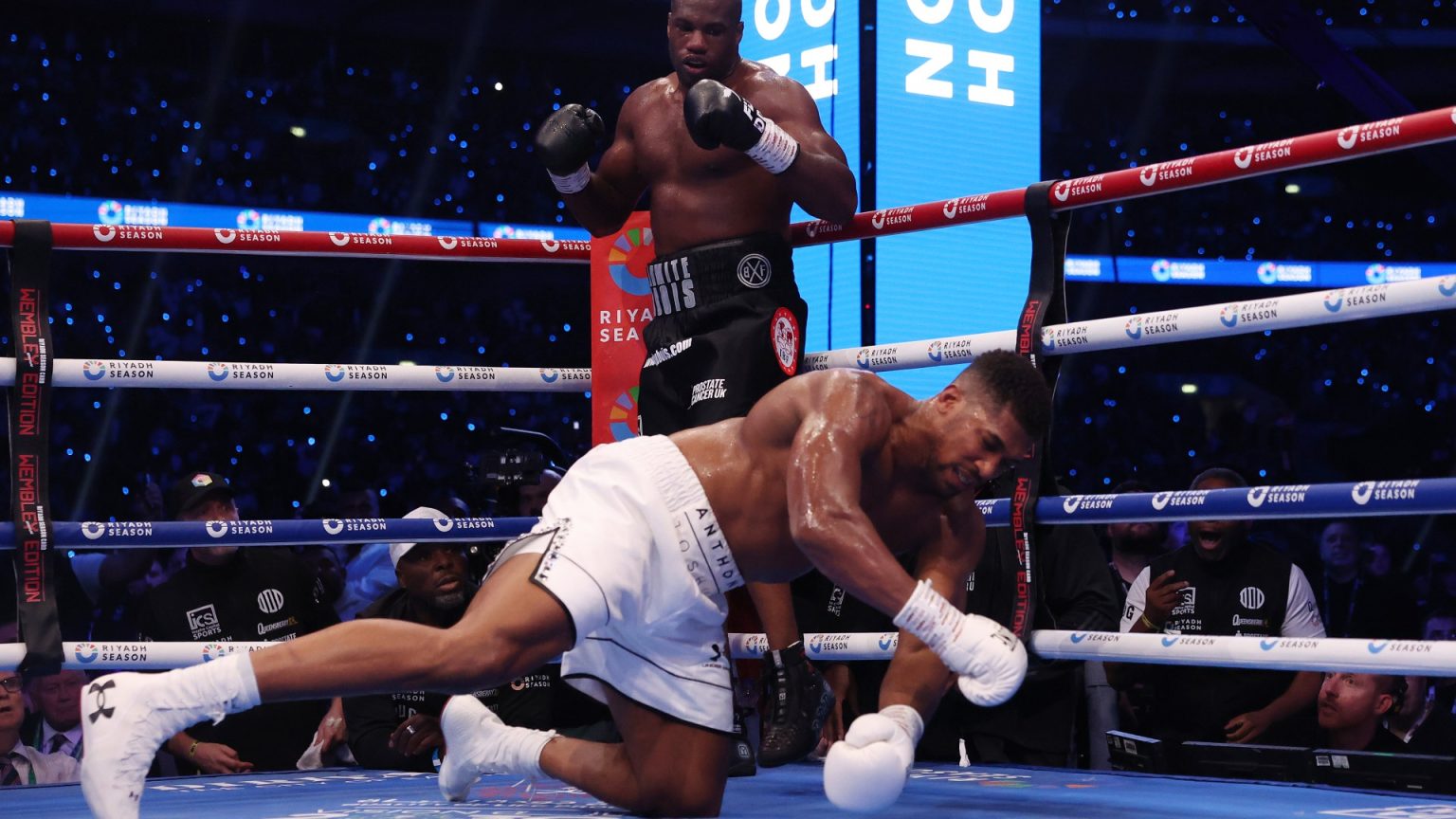Anthony Joshua’s resounding defeat at the hands of Daniel Dubois in their September clash for the IBF heavyweight title has prompted a closer look at the events leading up to the fight. While Joshua himself refrained from offering excuses, his trainer, Ben Davison, revealed that several aspects of their preparation had gone awry. Davison, who faced criticism for not throwing in the towel during the fight, insisted that the suboptimal training camp did not diminish Dubois’s achievement but acknowledged that internal missteps contributed to the outcome. He emphasized taking ownership of the situation and learning from the experience.
The less-than-ideal training camp involved unspecified issues that occurred in the lead-up to the fight. Davison chose not to elaborate on the specifics of these issues, focusing instead on the need for the team to accept responsibility. He stressed that the purpose of acknowledging these shortcomings was not to detract from Dubois’s victory, but rather to facilitate internal improvements and avoid similar pitfalls in the future. This admission sheds light on the behind-the-scenes challenges faced by Joshua and his team, adding another layer to the narrative of the fight.
The aftermath of the Dubois fight saw plans for a rematch in Riyadh on February 22nd shelved, primarily due to niggling injuries sustained by Joshua. This decision reflects a prioritization of Joshua’s long-term health and career trajectory over an immediate attempt to avenge the loss. Promoter Eddie Hearn emphasized the importance of a full recovery for Joshua before plotting his next move, suggesting a strategic approach to managing the fighter’s career in the wake of a significant setback.
Hearn’s focus shifted towards securing a highly anticipated “Battle of Britain” clash between Joshua and Tyson Fury. This fight, considered by many to be the biggest in British boxing history, gained momentum after Fury’s second consecutive loss to Oleksandr Usyk. Hearn believes that the time is right for this domestic showdown, viewing it as the most lucrative and compelling option for both fighters. He expressed confidence in securing the necessary backing for the event, particularly from Saudi Arabia’s Turki Alalshikh, a key player in the world of boxing promotion.
Hearn’s conviction stems from the belief that the Usyk defeats have not diminished Fury’s standing as a top-tier heavyweight. He acknowledged the sting of defeat for any fighter, drawing parallels with Joshua’s reaction to the Dubois loss. However, Hearn maintains that Fury remains a formidable opponent, and a clash with Joshua would be a monumental event for British boxing. This perspective positions the potential Joshua-Fury fight not as a contest between a fading star and a rising contender, but as a clash of two titans, each looking to reassert their dominance in the heavyweight division.
In essence, the narrative surrounding Anthony Joshua has transitioned from the immediate aftermath of the Dubois defeat to a forward-looking perspective centered on recovery and the pursuit of a mega-fight with Tyson Fury. The revelation of training camp issues provides context to the loss, while the postponement of the rematch and the focus on a Fury clash signal a strategic recalibration of Joshua’s career path. Hearn’s unwavering belief in the magnitude of a Joshua-Fury encounter underscores the potential for this fight to become a defining moment in British boxing history.


